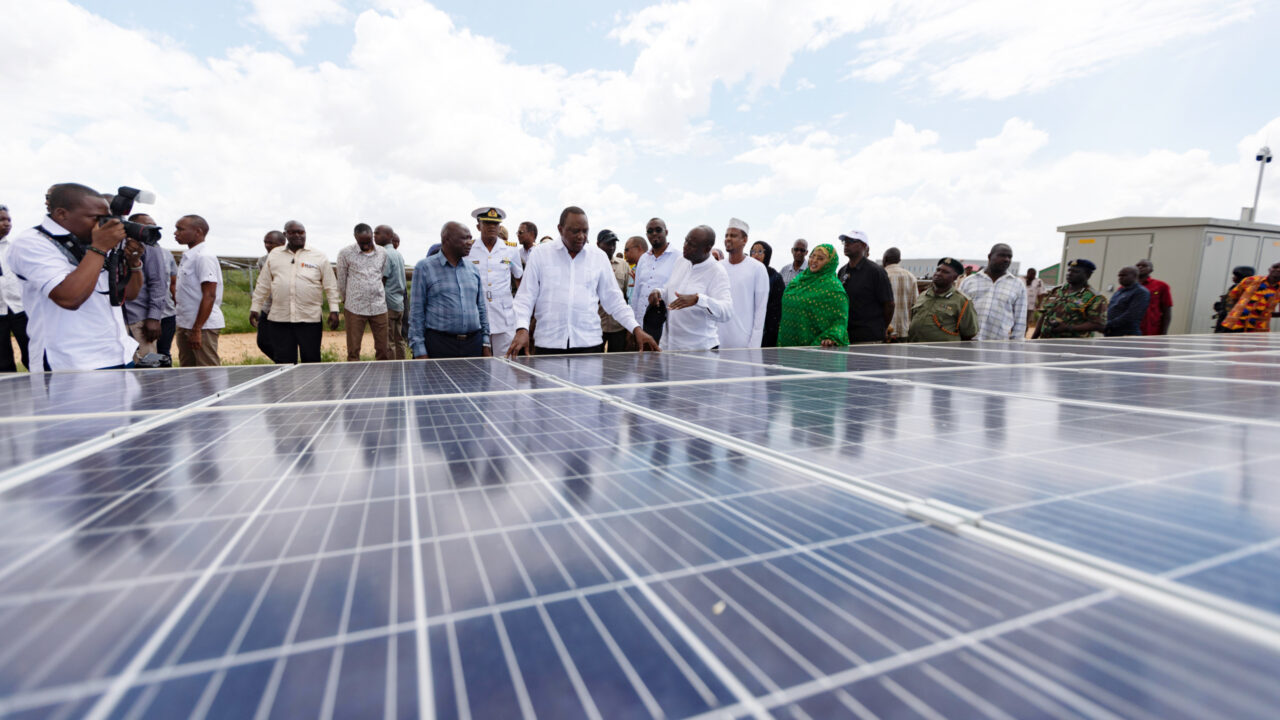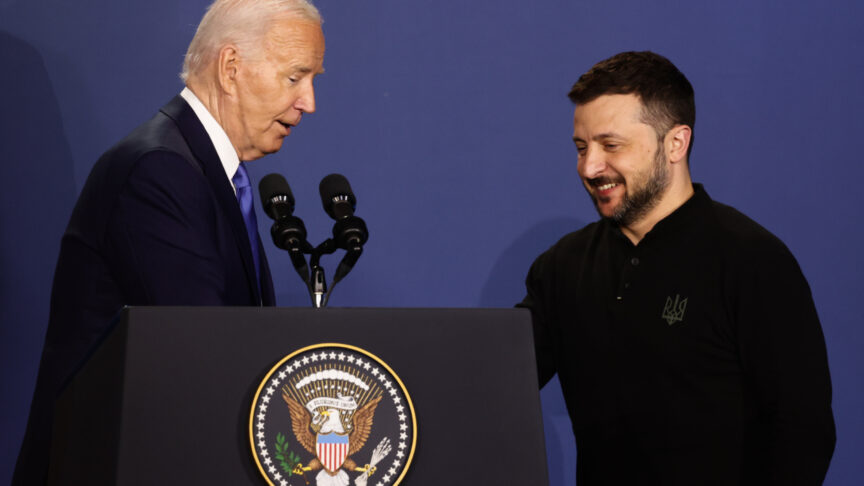False economy: Why Europeans should stop slashing development aid to Africa
The first two months of 2024 have seen the EU and member states redirect billions of euros of development funding away from Africa – but this could come at great cost to their long-term interests on the continent
In January and February 2024, European governments and entities cut €4.8 billion in long-term development and climate funding, much of which had been destined for Africa. This comes at a time when poverty in Africa is worsening for the first time in a generation. It also coincides with waning European influence on the continent, as well as concern among Europe’s leaders and policymakers about how this affects their strategic interests. Despite the multiple pressures Europeans are facing, redirecting funding away from Africa now simply seems wrong-headed.
The funding cuts – which together amount to 6 per cent of annual development funding from Germany, France, and the European Union – are underpinned by various national dilemmas and political imperatives. Germany’s constitutional court, for instance, barred the government’s efforts to reallocate unused covid-era debt to its green transition fund, which left a €17 billion hole in the country’s budget. It had to find cuts somewhere – €2 billion of redirected foreign aid seemed to fit the bill. France’s attempts to balance its own books have resulted in cuts to development funding of around €800m. The European Council, meanwhile, in securing a €50 billion package of funding for Ukraine, also quietly diverted more than €2 billion from long-term development programmes to fund “migration management” as part of the same deal on the EU’s long-term budget.
These examples are part of a wider trend. According to OECD statistics, 2022 saw Africa’s overall share of aid fall to less than at any other time this century, even as aid levels more broadly hit an all-time high. That year, the world’s official development assistance for almost 1.5 billion people in Africa was roughly the same as aid to Ukraine (population 44 million) and in-country refugee costs most of which are associated with the response to the war. This excludes military aid.
Clearly, Europeans have an imperative to maintain their unwavering support for Kyiv, including for Ukraine’s post-war reconstruction and EU accession. And unmanaged Mediterranean migration is contributing to “extraordinary political tension” that the EU has to address. But this need not come at the cost of the African continent. Europe’s cuts this year, in the context of a roughly €1 trillion EU budget, amount to 0.37 per cent. The EU and its member states can afford this. What they cannot afford is to scrimp on investments in the major challenges and opportunities that Africa presents.
Currently, three-quarters of Africans live in countries in or at risk of debt distress, and several of these are implementing painful austerity measures to avoid default. In the Democratic Republic of the Congo (DRC), 21.7 million people are in food “crisis”; while in Sudan and South Sudan, 4.4 million people are facing a food “emergency”, meaning households experience high levels of acute malnutrition and family members die. The ongoing war in Sudan has left 25 million people in urgent need of assistance, half of the country’s population. Moreover, in February, an official in the Ethiopia’s Tigray region warned that the 1985 famine that led to the Live Aid fundraising drive could pale by comparison to the catastrophe that was now taking place.
In February, an official in the Ethiopia’s Tigray region warned that the 1985 famine that led to the Live Aid fundraising drive could pale by comparison to the catastrophe that was now taking place
But that is only part of the picture.
At a time when geopolitical poles are shifting and multiplying, African leaders have found themselves with options. China and Russia have courted African countries for more than a decade. And in 2022, the United States stepped up its re-engagement with a US-Africa Summit, followed by high-level diplomatic engagement and substantive investments in processing critical raw minerals to produce batteries for electric vehicles on the DRC-Zambia border.
But China’s economic woes and retreat from the largesse of its investment in the Belt and Road Initiative create opportunities for Europe. The EU’s rhetoric recognises this, but significant scepticism remains in Africa over the substance of their plans. This was particularly evident in South African president Cyril Ramaphosa’s comments following the EU-Africa Summit in 2022. Announcements such as the EU’s pledge to invest €150 billion in Africa through its Global Gateway initiative involve heroic assumptions about the availability of funding – but there is limited transparency around what is actually being spent.
And yet, Europe and Africa will depend on one another for the resources necessary to power the energy transition via green industrialisation. This will be crucial in the EU’s pursuit of its target to reduce net emissions by 90 per cent from 1990 levels by 2040. As the US has recognised, alongside smaller powers such as the United Arab Emirates, Africa overflows with critical minerals. It also boasts around 60 per cent of the world’s solar potential, and enjoys some of the best locations on the planet for carbon capture and storage.
Moreover, Africa’s demographic boom presents a huge opportunity (and potential risk) for Europe. Africa will add 796 million people to the global workforce by 2050; Europe’s societies are aging, and its workforce will decline by 156 million over the same period. The youth boom is also powering a new creative force, with African artists taking the global stage in both popular and elite art. Afrobeat stars such as Burna Boy regularly sell out New York’s Madison Square Gardens and London’s Wembley Stadium. Universal Music recently took a major stake in Nigeria’s afrobeat label, Mavin Records. Scottish-Ghanaian architect, Lesely Lokko, curated the 2023 Venice Biennale and won the coveted Royal Institute of British Architects gold medal in 2024. This youthful energy looks set also to transform the tech industry and other sectors.
On the other hand, millions of young people lacking opportunity in Africa will undoubtedly be a potential source of unmanaged migration into Europe over the coming years. This is arguably already playing out in parts of the Sahel region, where government instability accompanied by engagement from Russia and other middle powers has led some analysts to dub it Africa’s “coup belt”.
The opportunities Europeans help create today will contribute to whether it is the opportunities or the risks that win out in the future.
Firstly, European leaders should avoid zero-sum budgeting between the multiple crises on Europe’s borders, which sees funding diverted from long-term development to the immediate demands of migration management. They should instead take a longer-term view on investment potential in Africa and Europe’s influence internationally – in line with the EU’s stated strategic priorities when it comes to climate change and foreign policy.
Secondly, Europeans should prioritise steps to develop “country platforms” for green industrialisation, building on Just Energy Transition Partnerships. These should entail clear targets and rationale for the benefits to citizens of both Europe and Africa, and could create specific demand cases for low-cost investment to fuel green transitions.
Finally, Europeans should unlock new forms of investment in these green industrialisation platforms by leveraging Special Drawing Rights and other forms of monetary financing to better capitalise on Multilateral Development Banks. This would reduce African countries’ cost of capital and dependence on more expensive loans.
The pressures on European politicians are real. But they should take a longer view of Europe’s role in the world and the partnerships needed for the EU to achieve its objectives.
David McNair is a member of ECFR’s Council, a visiting scholar at the Carnegie Endowment for International Peace, and executive director at the ONE Campaign.
Mimi Alemayehou served as executive vice president of the US Overseas Private Investment Corporation and as United States executive director of the African Development Bank.
This commentary was amended on 11 March 2024 to clarify that aid to Ukraine includes refugee costs related to the war within European countries
The European Council on Foreign Relations does not take collective positions. ECFR publications only represent the views of their individual authors.



